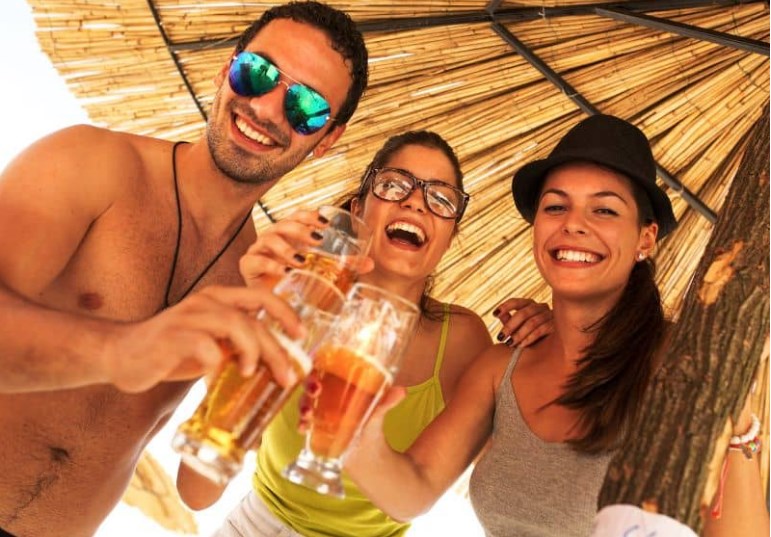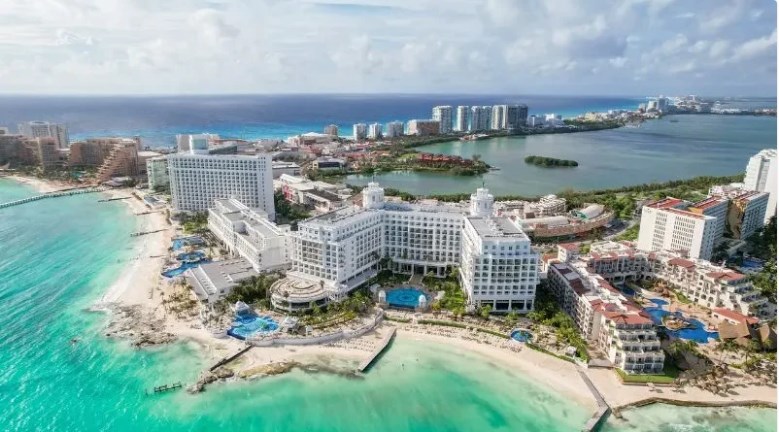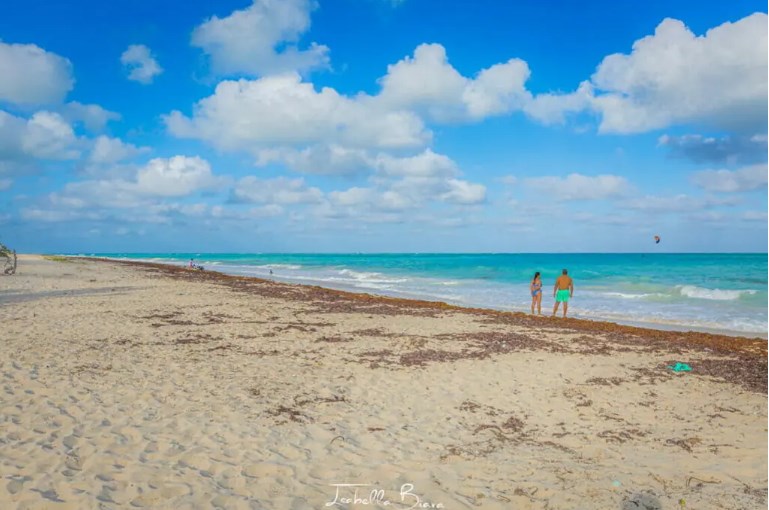Essential Laws Every Tourist Should Know, Including the Legal Drinking Age in Cancun, Mexico
Cancun, a stunning resort city located on the eastern coast of Mexico’s Yucatan Peninsula, is renowned for its pristine beaches, vibrant nightlife, and world-class hospitality. As a top tourist destination, it attracts millions of visitors each year seeking sun-soaked relaxation and exhilarating adventures. However, when enjoying the nightlife, it’s important for tourists to be aware of the legal drinking age in Cancun to ensure a safe and enjoyable experience. From the crystal-clear waters of the Caribbean Sea to the bustling hotel zone, Cancun offers a diverse array of experiences, making it a favorite choice for vacationers from around the globe.
However, while Cancun’s allure is undeniable, it’s crucial for tourists to familiarize themselves with the local laws and regulations to ensure a smooth and enjoyable trip. Understanding these legal requirements can help prevent misunderstandings and avoid potential legal issues that might arise during your stay. Laws regarding immigration, vehicle use, alcohol consumption, and other aspects of daily life in Cancun are not always intuitive, and what might be acceptable in your home country could be prohibited or regulated differently in Mexico.
This article aims to shed light on key laws and regulations that tourists should be aware of when visiting Cancun. By highlighting important legal considerations, from visa requirements and vehicle insurance to alcohol laws and drug regulations, this guide will help ensure that your time in Cancun is both enjoyable and trouble-free. Being informed about these laws not only helps you stay compliant but also enhances your overall travel experience by minimizing the risk of legal complications.
I. Visa and Immigration Regulations
A. Tourist Card and Resident Visa Requirements
When visiting Cancun, it’s essential to understand Mexico’s visa and immigration regulations to avoid any legal issues. The primary document required for most tourists is the Tourist Card, officially known as the Forma Migratoria Múltiple (FMM). This card allows foreigners to stay in Mexico for up to 180 days and is mandatory for all visitors who are not Mexican citizens or permanent residents.
The Tourist Card serves multiple purposes: it helps the Mexican government track the duration of your stay and ensures that all visitors comply with local immigration laws. You can obtain the FMM online before your trip, at the port of entry, or through Mexican consulates abroad. The online application is straightforward and can be completed via the National Institute of Migration’s (INM) website. It is advisable to complete this process in advance to avoid delays upon arrival.
Renewing the Tourist Card is necessary if you plan to stay longer than the initially granted 180 days, though this usually requires leaving the country and re-entering or applying for an extension at the INM office. It is crucial to keep your Tourist Card with you at all times during your stay, as you may be asked to present it to immigration authorities.
B. Legal Consequences of Visa Violations
Overstaying your visa is a serious offense in Mexico and can lead to significant legal repercussions. If you remain in the country beyond the validity of your Tourist Card or resident visa, you may face fines, deportation, and a potential ban on re-entering Mexico. The severity of the consequences often depends on the length of the overstay and the specific circumstances surrounding it.
To address visa violations, you should immediately contact the Mexican immigration authorities to rectify the situation. This might involve paying fines and explaining your circumstances. If you find yourself in this situation, it is recommended to seek assistance from a local immigration lawyer to navigate the process effectively.
Additionally, tourists should be aware that if they are found to have overstayed their visa while attempting to exit Mexico, they may be detained and face delays in departure. It is advisable to address any visa issues as soon as possible to avoid complications with your travel plans.
Being well-informed about these visa requirements and potential consequences will help ensure a smooth and enjoyable visit to Cancun, free from legal troubles. Understanding and adhering to Mexico’s immigration regulations is a crucial step in making the most of your stay in this beautiful and vibrant destination.
II. Vehicle and Traffic Laws
A. Mandatory Vehicle Insurance
When renting a car in Cancun, one of the crucial requirements is obtaining adequate vehicle insurance. In Mexico, having liability coverage is not just a recommendation but a legal obligation. This insurance protects you against financial liability if you are involved in an accident that causes damage to other people or their property. Without proper insurance, you could face substantial out-of-pocket expenses and legal complications.
In addition to liability coverage, it is highly recommended to secure a policy that includes legal representation and bail bond coverage. These additional protections are vital because, in the event of an accident, you may need legal assistance or might be required to post bail. Insurance providers offering 24-hour customer support can be invaluable, especially if you encounter legal issues or require immediate assistance.
Many car rental companies in Cancun offer insurance packages, but it is wise to review these options carefully. Some packages might not include all the necessary coverage or could have limitations. Verify that your insurance covers a wide range of potential issues, including theft, vandalism, and accident-related legal expenses.
B. Drunk Driving Laws
Mexico takes drunk driving very seriously, and Cancun is no exception. The legal blood alcohol content (BAC) limit for drivers is 0.8%. Exceeding this limit can result in severe penalties. Unlike some other destinations, there are no leniencies or special privileges for foreign drivers regarding alcohol consumption and driving.
The consequences of driving under the influence can be severe. If you are caught driving with a BAC over the legal limit, you may face immediate detention, hefty fines, and even imprisonment. In addition, if your impaired driving results in an accident, you could be held responsible for any damages and injuries, and face additional legal repercussions. It is crucial to avoid driving if you have been drinking and to use alternative transportation methods such as taxis or rideshare services to ensure your safety and compliance with local laws.
C. Alcohol Consumption in Vehicles
While it is not illegal to transport alcohol in your vehicle in Mexico, consuming alcohol while driving is strictly prohibited. The laws distinguish between the act of drinking alcohol in a moving vehicle and simply having alcohol present inside the vehicle. Consuming alcohol while driving can lead to immediate fines, penalties, and legal consequences similar to those for drunk driving.
It is also important to note that public consumption of alcohol is regulated differently from vehicle-related alcohol laws. While drinking alcohol in public spaces such as beaches or parks may be permitted in some areas, it is always wise to check local regulations. In Cancun, open container laws can vary, and consuming alcohol in public areas might be restricted or prohibited in certain places.
To avoid legal troubles, ensure that all alcoholic beverages are properly stored in your vehicle and refrain from drinking while driving. By adhering to these regulations, you contribute to a safer environment for yourself and others and enjoy a trouble-free experience while exploring Cancun.
III. Alcohol Laws
A. Minimum Legal Drinking Age
In Cancun, as in the rest of Mexico, the legal drinking age is set at 18 years old. This regulation aligns with the broader national standards and applies to both residents and visitors. It is important for tourists to be aware of this age limit to avoid potential legal issues. Bars, restaurants, and other establishments serving alcohol are required to check the age of their patrons before selling alcoholic beverages.
To ensure compliance with the legal drinking age, establishments will request photo identification from anyone who appears to be underage. Acceptable forms of ID typically include a valid passport or a driver’s license. Visitors who do not carry appropriate identification may be refused service. It is advisable to carry a photo ID at all times when engaging in activities involving alcohol, not only to comply with the law but also to avoid any inconvenience during your stay.
B. New Alcohol Laws (Effective February 2019)
In February 2019, Cancun and the surrounding Riviera Maya region implemented new regulations regarding the sale of alcohol. One significant change is the restriction on the sale of packaged alcohol after 11:00 p.m. This measure aims to address concerns related to excessive drinking and its associated disturbances. Under these new rules, liquor stores and supermarkets are prohibited from selling packaged alcohol after this hour.
However, bars and nightclubs have the option to apply for special permits that allow them to continue selling alcohol until 3:00 a.m. These permits are subject to specific conditions and must be renewed periodically. The special permit system ensures that venues serving alcohol late into the night adhere to additional regulations designed to maintain public order and safety.
C. Enforcement and Compliance
The enforcement of alcohol laws in Cancun is taken seriously by local authorities. Regular checks and inspections are conducted to ensure that establishments adhere to the regulations regarding alcohol sales and consumption. Violations of these laws can result in significant fines, closures, or other legal actions against the establishments involved.
For tourists, it is crucial to comply with these alcohol regulations to avoid potential legal issues. Establishments found in violation of the alcohol laws may face penalties that could indirectly affect customers, such as sudden changes in service hours or increased scrutiny. Similarly, tourists who fail to follow age verification requirements or engage in illegal drinking behaviors could face fines or legal trouble.
To ensure smooth compliance, familiarize yourself with local alcohol laws before engaging in activities involving alcohol. Adhering to these regulations not only helps avoid legal problems but also contributes to a safer and more enjoyable experience in Cancun. Understanding and respecting local laws enhances your overall travel experience and ensures that your visit remains enjoyable and trouble-free.
IV. Drug Laws
A. Possession and Trafficking of Illegal Drugs
In Cancun, as throughout Mexico, drug laws are stringent and strictly enforced. The possession, use, or trafficking of illegal drugs is classified as a federal offense under Mexican law. This includes not only hard drugs like cocaine, heroin, and methamphetamines but also certain controlled substances that might be legal in other countries. Mexico’s legal framework categorizes these offenses with significant severity to combat drug-related crime effectively.
Possession of illegal drugs, regardless of quantity, can result in severe legal consequences. If caught with drugs, individuals can face arrest, confiscation of the substances, and a legal process that may involve lengthy court proceedings. For those involved in drug trafficking, the penalties are even more severe, including lengthy imprisonment and substantial fines. The Mexican legal system treats drug trafficking with utmost seriousness due to its links to organized crime and violence.
If you require controlled medications for medical reasons, it is crucial to carry appropriate documentation. Bringing prescribed medications into Mexico requires a copy of the prescription or a doctor’s note detailing the need for the medication. This documentation should be in Spanish or accompanied by a certified translation to facilitate easier communication with authorities. Proper documentation helps avoid misunderstandings and potential legal issues at customs or during encounters with law enforcement.
B. Consequences of Drug Violations
The repercussions for drug violations in Cancun can be severe and have far-reaching consequences. If caught in possession of illegal drugs, you could face fines, arrest, and detention. The severity of the penalty often depends on the type and amount of drug involved. Minor possession might lead to fines and brief detention, while larger quantities or involvement in trafficking could result in lengthy imprisonment.
Imprisonment for drug offenses in Mexico can be harsh, with sentences often including several years of incarceration. The prison conditions are typically stringent, and foreign detainees may face additional challenges due to language barriers and differences in legal processes. In some cases, the legal proceedings may be drawn out, adding to the stress and complications of the situation.
Fines for drug-related offenses can also be substantial and are determined based on the offense’s nature and scale. In addition to financial penalties, individuals convicted of drug violations might face deportation or a ban on re-entering Mexico. The legal process can be complex, and without proper legal representation, navigating the Mexican legal system can be challenging.
To avoid such severe consequences, it is essential to adhere to Mexico’s drug laws strictly. Understanding and respecting local regulations regarding drugs and medications is crucial to ensuring a trouble-free stay in Cancun. Always carry necessary documentation for prescribed medications and avoid involvement with illegal substances to safeguard your well-being and travel experience.
V. Weapons and Self-Defense
A. Prohibition on Guns and Weapons
In Mexico, the laws regarding firearms and weapons are highly restrictive, reflecting a strong stance against the possession and use of such items by civilians. Carrying firearms, including handguns, rifles, and shotguns, is generally prohibited unless you have a specific permit, which is challenging to obtain and typically reserved for security personnel and law enforcement. Mexican gun control laws are stringent, aiming to reduce violence and maintain public safety.
Travelers should be particularly aware of these regulations to avoid legal complications. The possession of any type of weapon, including knives and other potentially dangerous items, is tightly regulated. This includes items like pocket knives, which might be legal in other countries but are often considered weapons under Mexican law. Carrying such items can lead to legal trouble if authorities view them as a potential threat or illegal weapon.
For travelers, it is strongly advised to leave any personal defense items, such as pocket knives or pepper spray, at home. Even though these items are intended for personal safety, they can be considered illegal weapons under Mexican law. The presence of such items in your luggage or on your person can result in confiscation, fines, or more severe legal consequences if deemed a threat or violation of local regulations.
B. Legal and Safety Implications
The risks associated with carrying weapons in Mexico are significant and multifaceted. Legal implications are the most immediate concern. If caught with a firearm or other illegal weapon, individuals can face serious legal consequences, including arrest, detention, and prosecution. The legal system in Mexico treats weapon violations with a high degree of seriousness, and the penalties can include substantial fines and lengthy imprisonment.

In addition to legal risks, there are practical safety concerns. The Mexican legal system is known for its strict enforcement of weapon laws, and interactions with law enforcement regarding weapons can be highly stressful and complex, especially for foreign visitors. Language barriers and unfamiliarity with local legal processes can exacerbate these challenges, making it difficult to resolve issues promptly and effectively.
Furthermore, having a weapon in a foreign country can lead to unintended consequences. For instance, if a weapon is discovered during a routine check or a security screening, it can result in immediate detention and legal action. The presence of a weapon might also lead to heightened suspicion and further scrutiny from authorities, impacting your travel experience and overall safety.
To ensure compliance with local laws and avoid unnecessary complications, it is best to adhere to Mexican regulations regarding weapons and personal safety items. Prioritize understanding and respecting these laws to maintain a trouble-free and secure stay in Cancun. Familiarize yourself with local regulations before your trip, and always seek alternative, lawful means to ensure personal safety while traveling.
VI. Fishing Regulations
A. Fishing Licenses
In Mexico, fishing regulations are strictly enforced to protect marine ecosystems and ensure sustainable practices. If you plan to fish while in Cancun, it is essential to understand the licensing requirements to avoid legal issues.
For anyone fishing from a boat in Mexican waters, obtaining a valid fishing license is mandatory. This rule applies regardless of whether you are actively fishing or merely carrying fishing gear. The license requirement ensures that all fishing activities are regulated and monitored, contributing to the conservation of marine resources. The license is necessary for both recreational and commercial fishing, and failing to secure one can lead to significant penalties.
In contrast, if you are fishing from land—such as from the beach or a pier—no fishing license is required. This distinction simplifies the process for casual anglers who prefer land-based fishing and reduces the regulatory burden for less formal fishing activities. However, it’s crucial to comply with any specific local rules or regulations that may apply to land-based fishing in certain areas.
B. Enforcement and Compliance
To obtain a fishing license for boat fishing in Mexico, you should contact the Mexican government’s fisheries agency or visit their website. The application process typically involves filling out a form, paying a fee, and providing necessary documentation such as identification and details about your fishing activities. Fishing licenses can often be acquired online or through designated local offices and authorized vendors.
It is important to keep your fishing license readily available and visible while you are fishing. Authorities regularly conduct inspections to ensure compliance with fishing regulations, and having your license accessible will help avoid any delays or complications during these checks.
To avoid penalties and ensure smooth compliance with fishing regulations, adhere to the following guidelines:
- Purchase the License: Secure your fishing license well in advance of your fishing activities. Ensure it is valid for the duration of your stay and covers the specific type of fishing you plan to undertake.
- Know the Rules: Familiarize yourself with all applicable fishing regulations, including size and bag limits, prohibited species, and restricted areas. Regulations may vary by location and time of year, so check for any updates or local advisories.
- Keep Documentation Handy: Always have your fishing license and any other required documentation readily accessible during your fishing activities. This practice will help you promptly address any inquiries or inspections by authorities.
- Follow Local Guidelines: Be aware of and adhere to any additional local fishing rules or guidelines that may apply in specific areas of Cancun. These can include seasonal restrictions, protected areas, or specific regulations for certain types of fishing.
By obtaining the proper fishing license and understanding the regulations, you can enjoy your fishing experience in Cancun while contributing to the conservation of Mexico’s rich marine life. Compliance with these regulations not only ensures that you avoid legal issues but also supports sustainable fishing practices that protect the environment for future generations.
VII. Political Activities
A. Restrictions on Political Engagement
Mexico maintains strict regulations regarding political activities, particularly for foreigners. Participation in demonstrations, protests, or any form of political engagement is generally restricted for non-citizens. This policy is designed to prevent foreign interference in domestic political affairs and to ensure public order.
Foreign tourists are advised against participating in political demonstrations or protests while in Mexico. Such activities can be viewed as a violation of local laws and can lead to significant legal consequences. The legal framework governing these restrictions aims to avoid potential conflicts and ensure that political discourse remains a matter for Mexican citizens and residents.
Engaging in political activities, even if seemingly harmless, can be perceived as disruptive or inflammatory. It is important for tourists to respect local norms and regulations related to political engagement to avoid inadvertently becoming involved in sensitive issues. Understanding and adhering to these restrictions is crucial to maintaining a positive and trouble-free visit to Mexico.
B. Potential Consequences
Engaging in political activities as a foreigner in Mexico carries several risks. The most immediate consequence of participating in demonstrations or protests can be legal action. Local authorities have the power to detain individuals involved in political activities that they deem unauthorized or disruptive. This can lead to questioning, detention, and legal proceedings, which can be complex and challenging for non-citizens to navigate.
Another significant risk is deportation. If a foreign national is found to be participating in political activities that violate Mexican laws, they may face deportation. Deportation is a serious consequence and can also lead to a ban on re-entry into Mexico. Such actions can have lasting impacts on future travel plans and relationships with the country.
Additionally, political activities can attract unwanted attention and escalate into larger conflicts, especially if they involve contentious issues or confrontations with local authorities. This not only puts participants at risk but can also affect their safety and well-being.
To avoid these risks, it is strongly recommended that tourists refrain from engaging in any form of political activity. Instead, focus on enjoying the cultural and recreational aspects of your visit. If you encounter any political demonstrations or protests, it is best to steer clear and avoid involvement. Staying informed about local customs and laws regarding political engagement helps ensure a smooth and enjoyable travel experience.
In summary, respecting Mexico’s restrictions on political activities and avoiding involvement in demonstrations or protests is essential for maintaining your safety and adhering to local laws. By understanding these regulations and acting accordingly, you can enjoy your visit to Mexico without facing legal complications or risking your ability to return in the future.
VIII. Legal Assistance and Consular Support
A. Procedures for Arrest or Detention
If you find yourself arrested or detained while traveling in Cancun, it is crucial to understand the proper steps to take to ensure your rights are protected and to navigate the legal system effectively. The first and most important action is to remain calm and cooperative with local authorities. Provide only necessary information and avoid making any statements that could be misinterpreted or used against you.
One of the first steps you should take is to request that the authorities notify your Embassy or Consulate immediately. Under international law, you have the right to contact your country’s diplomatic representatives when detained abroad. This notification is crucial as it alerts your government to your situation and initiates a process to ensure that your rights are upheld and that you receive appropriate assistance.
In addition to contacting your Embassy or Consulate, it is advisable to remain in contact with family or friends who can help coordinate support and ensure that you receive necessary legal representation. They can also help by providing additional information to your consulate about your situation and facilitate communication between you and your legal representatives.
B. Role of the Embassy or Consulate
The Embassy or Consulate plays a vital role in providing assistance to its citizens who are arrested or detained abroad. Consular services can help in several key ways, including:
- Legal Assistance: While consulates cannot provide direct legal representation or intervene in legal proceedings, they can offer a list of local Mexican lawyers who are experienced in handling cases involving foreigners. This helps ensure that you have access to competent legal counsel who can navigate the Mexican legal system on your behalf.
- Communication Support: The consulate can assist in facilitating communication between you and your family, ensuring that they are informed about your situation. They can also help relay messages and provide updates regarding your legal status.
- Emergency Assistance: In cases where immediate assistance is required, such as during a medical emergency or if you are in a vulnerable position, the consulate can coordinate with local authorities to ensure your safety and well-being.
- Guidance and Information: The consulate can provide important information about the local legal system, your rights as a foreign national, and the steps you need to follow. They can also advise you on how to handle specific legal challenges and ensure that you are aware of any available resources or support.
To contact your Embassy or Consulate, you should use the contact information provided by your government prior to your travel. It is a good idea to keep this information readily accessible during your trip. Most embassies and consulates also have emergency contact numbers that can be used outside of regular business hours.
In summary, if you are arrested or detained in Cancun, promptly notifying your Embassy or Consulate is essential for receiving the necessary support and legal assistance. The consulate plays a crucial role in helping you navigate the legal process, connecting you with local lawyers, and facilitating communication with your family. By understanding these procedures and knowing how to access consular support, you can better manage any legal challenges that may arise during your travels.
Cancun, a premier tourist destination renowned for its stunning beaches and vibrant nightlife, also has a set of important laws and regulations that visitors must adhere to for a trouble-free experience. Understanding these laws is essential to ensure that your trip remains enjoyable and free from legal complications.
Key regulations to be aware of include the necessity for a valid tourist card or resident visa, which must be maintained to avoid overstaying your visa. Vehicle insurance is mandatory if you rent a car, and adherence to strict drunk driving laws is crucial to avoid severe penalties. Alcohol laws have specific rules, such as the minimum legal drinking age of 18 and restrictions on alcohol sales after 11:00 p.m., while drug laws impose strict penalties for possession and trafficking. Weapons and fishing regulations also carry strict guidelines, including prohibitions on carrying firearms and the requirement for fishing licenses when using boats.
To ensure a safe and enjoyable trip, always stay informed about local laws and regulations, including the legal drinking age in Cancun. Respect the legal framework governing your activities, whether it involves driving, consuming alcohol, fishing, or participating in political activities. Familiarize yourself with these regulations before traveling, and maintain open communication with local authorities if needed.
By respecting local laws and staying well-informed, including understanding the legal drinking age in Cancun, you not only protect yourself from legal issues but also contribute to a positive and respectful interaction with the host country. Cancun offers a rich and rewarding experience for those who approach their visit with awareness and consideration of local regulations. Enjoy your travels responsibly and make the most of what this beautiful destination has to offer.
Age -Ashley Cruger Kinney A Journey from Journalism Graduate to Model and Business Development Manager – Exploring Ashley Cruger Age
Understanding Age of Sexual Consent in Maryland A Comprehensive Analysis of Age of Consent Laws
Comprehensive Youth Size Guide Understanding Measurements and Fit for Youth Medium Size Age




 | Sitemap | Mail
| Sitemap | Mail